RUSSIA’S RETURN TO SUPERPOWER STATUS
For a decade after the fall of the Soviet Union in 1991, Russia was depleted, defeated, and outside the mainstream of world affairs. But Vladimir Putin became president in 2000, and since then, Russia has changed dramatically.
Putin has called the Soviet Union’s collapse the “greatest geopolitical catastrophe” of the 20th century. He has dedicated himself to reversing that “catastrophe” and restoring Russia to what he sees as its rightful position as a major world power.
Putin asserted control over territories in Georgia in 2008 and annexed Ukraine’s Crimean Peninsula in 2014. His labors to rebuild parts of the old Soviet empire have been successful—and he isn’t finished.
Russia rebuilding its economic, political and military power is a crucial global trend. The Trumpet expects that in the time just ahead, Russia will become, quite remarkably, even more powerful than the Soviet Union.
We also forecast that the rise of this Asian giant will directly contribute to some of the most cataclysmic events in mankind’s history. Bible prophecy is clear about the role Russia and its Asian partners will play in World War iii—the bloodiest war mankind will ever experience. It is because of these irrefutable prophecies that the Trumpet carefully watches and reports on Russia’s resurgence.
A crucial related trend we are also watching closely is Europe’s response to Russia’s rise, which the Bible says will also play a major role in future events.
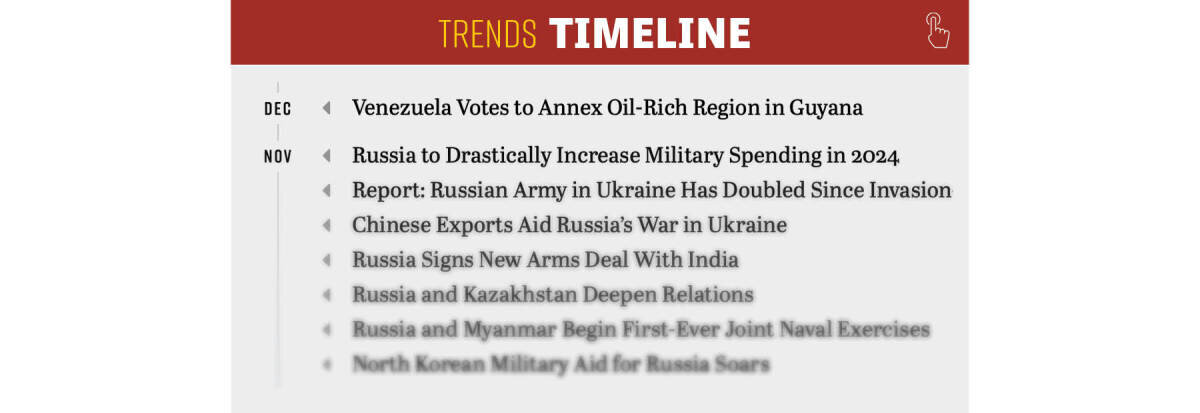
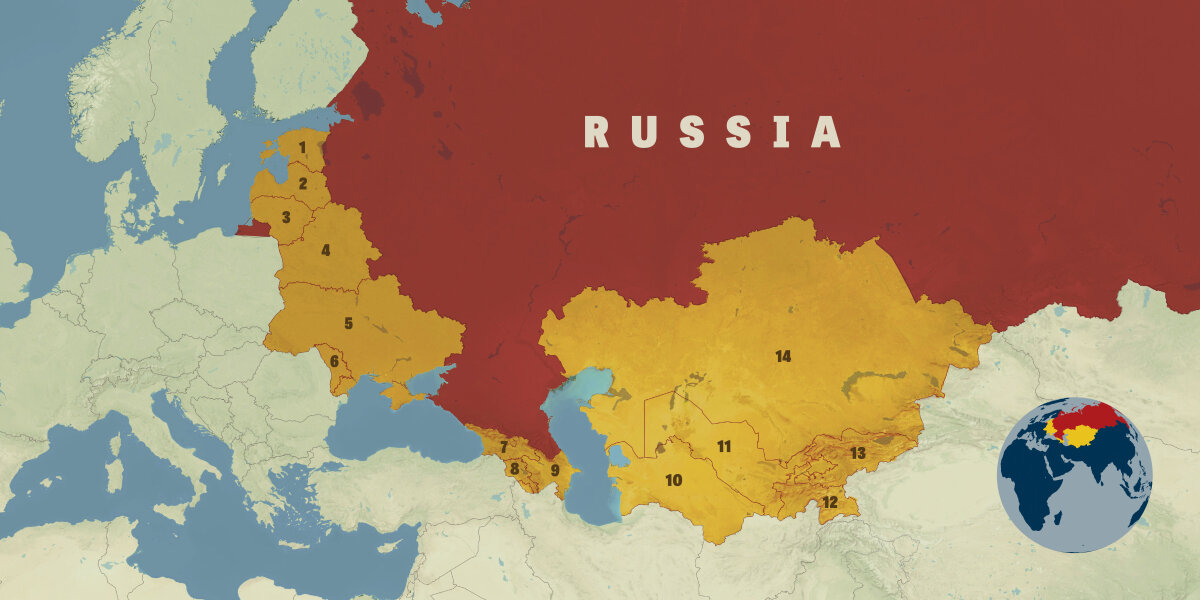
_____
A Strongman Rises
Before becoming president, Putin operated for 16 years as an agent of the infamous kgb—the murderous secret service arm of the Russian government that succeeded Joseph Stalin’s secret police.
In parliamentary elections in 2003, Putin combined kgb tactics with his presidential powers to manipulate the election process to ensure victory for his party. This allowed him to cement control over Russia in a way that recalled that nation’s authoritarian history.
In the years since, Putin has led a regime that systematically controls domestic media, seizes private firms, imprisons or murders political opponents, supports foreign tyrants, and takes other nations’ territory by force.
From the beginning of his reign, Putin has also worked to control Russia’s single most strategic asset: oil. By seizing control over Russia’s vast oil and gas resources, Putin gained considerable global influence. Some analysts say his de facto ownership of Russian energy makes him not only the richest man in the world today, but one of the richest people in the history of the world.
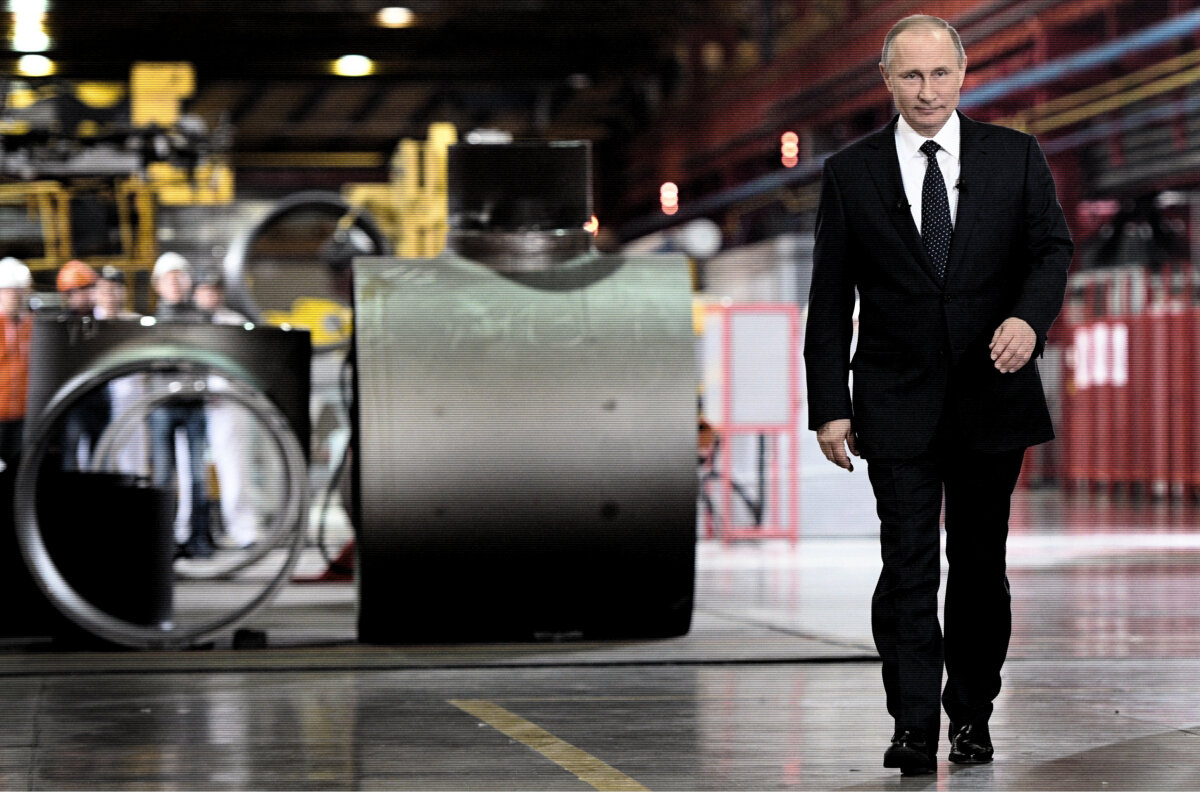
In the winter of 2005-06, Putin unveiled a powerful weapon for the first time.
Ukraine had recently rebelled against Russia by rejecting a pro-Russian candidate in favor of pro-Western Viktor Yushchenko. The country was moving away from Russia’s influence and taking steps toward membership in the European Union, so Russia struck back.
In the middle of winter, Moscow closed off gas pipelines into Ukraine, announcing that it would only reopen the flow when Ukrainians paid a far higher price. Ukraine had no choice but to cave in. The gas cutoff also affected Europe—a timely reminder that Russia could make European states pay if they dared cross the Kremlin.
From there, Putin’s Russia only grew bolder and more belligerent. In 2007, strong evidence pointed to Russian involvement behind a massive and organized Internet attack against Estonia. It was labeled the first state-to-state cyberattack in history. Later that year, Putin announced that the Russian Air Force would resume Cold War-style nuclear bomber flights into international airspace. That summer, Russian bombers entered airspace over the United Kingdom and also flew on an intercept course toward the U.S. military base in Guam. “The message to the West is clear: The days of dismissing Russia as a spent force are over,” wrote the Washington Times (Aug. 19, 2007).
Russia also increased its power through strategic weapons sales, courting nations throughout Asia, South America and even the Middle East.
In December 2007, after a parliamentary election that consolidated yet more power under Putin, he officially rejected the Conventional Armed Forces in Europe Treaty. Thus, Europeans no longer had any guarantee that Russia wouldn’t deploy thousands of tanks on their eastern borders.
These were all alarming moves, but 2008 looked like the end for Putin—at least to some. Under the Russian Constitution, the president was limited to two consecutive terms in office. Putin could not continue as president beyond the 2008 elections without changing the law. So, he switched jobs. He became prime minister, and kept the power, with Dmitry Medvedev, more or less a puppet, taking the presidency. Putin remained in the Kremlin, continuing to push his authoritarian policies, and then returned to the presidency in 2012.
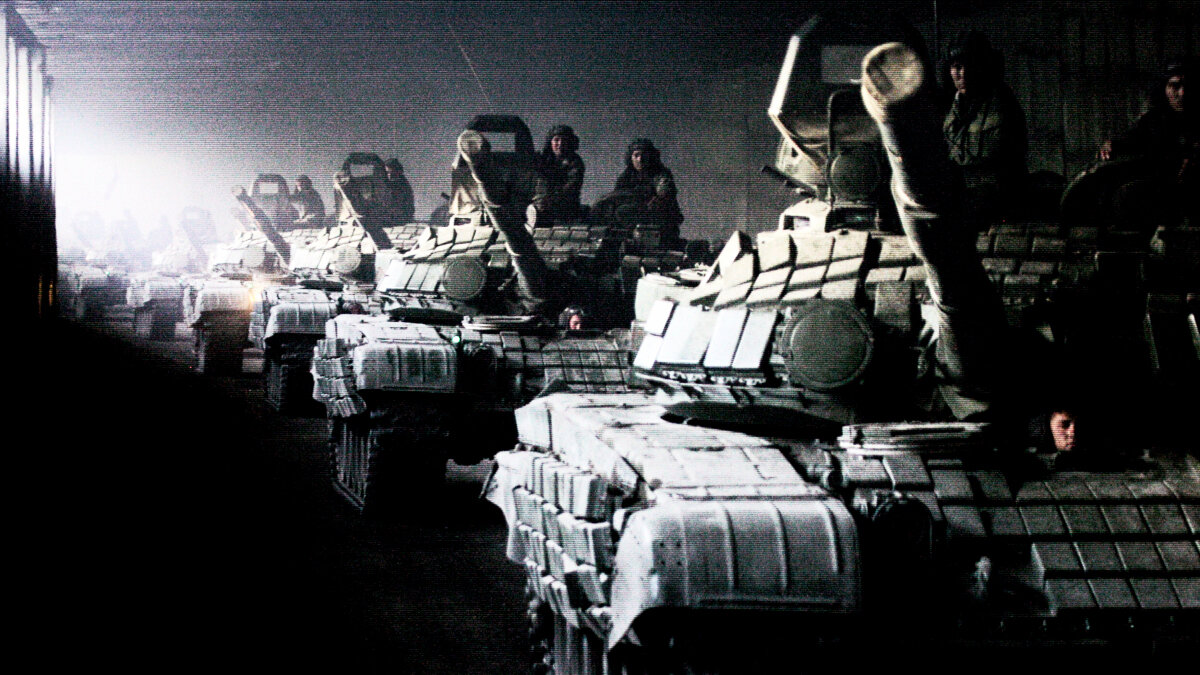
_____
Geographic Expansion: Georgia and Ukraine
In August 2008, Russia attacked the former Soviet republic of Georgia and asserted control over about a fifth of Georgia’s territory. The regions of South Ossetia and Abkhazia both became de facto parts of Russia.
Russia’s violent actions in Georgia are easy to understand in light of some recent history in the Balkans, specifically Kosovo. There, Russia felt that Western nations had essentially declared war by furthering European ambitions at the expense of Russian allies. Invading Georgia was Russia’s retaliation.
But Russia didn’t stop there.
Just after Russia used military force to invade Georgia, Trumpet editor in chief Gerald Flurry wrote the following in the October 2008 issue: “Russia’s attack on Georgia in August marks the beginning of a dangerous new era in history. This was the first military strike of a rising Asian superpower—and there will be more! … Will a crisis occur over Ukraine? That area is the breadbasket of Russia, and surely it is willing to wage war over that as well.”
Time proved that forecast to have been stunningly accurate.
For several years, Ukraine had been working to join the European Union. In 2009, it joined Europe’s Eastern Partnership program and sought to use it as a stepping-stone into the EU. Ukrainian President Victor Yanukovych planned to sign an agreement on Nov. 29, 2013, marking deeper integration with the EU. But on November 21, Yanukovych abruptly announced that he would not sign it after all. Many analysts were shocked. Why did the Ukrainian president make such a dramatic U-turn?
Because of Russia! It emerged in late November that Yanukovych had secretly flown to Moscow early in the month to meet with Putin. At this secret meeting, Putin apparently agreed to stop putting an economic squeeze on Ukraine and offered Yanukovych some financial rewards that would help him cling to power if the Ukrainian president would pull out of the EU deal.
“[T]he unprecedented pressure from the Russians was the decisive factor,” said former Polish president and intermediary Aleksander Kwasniewski.
Ukraine then looked to be on course to become a member of Russia’s Customs Union. But when the Ukrainian government made this about-face, many Ukrainians felt betrayed and oppressed. They feared Russia’s growing authoritarianism and the corruption of their own government, so they staged massive protests.
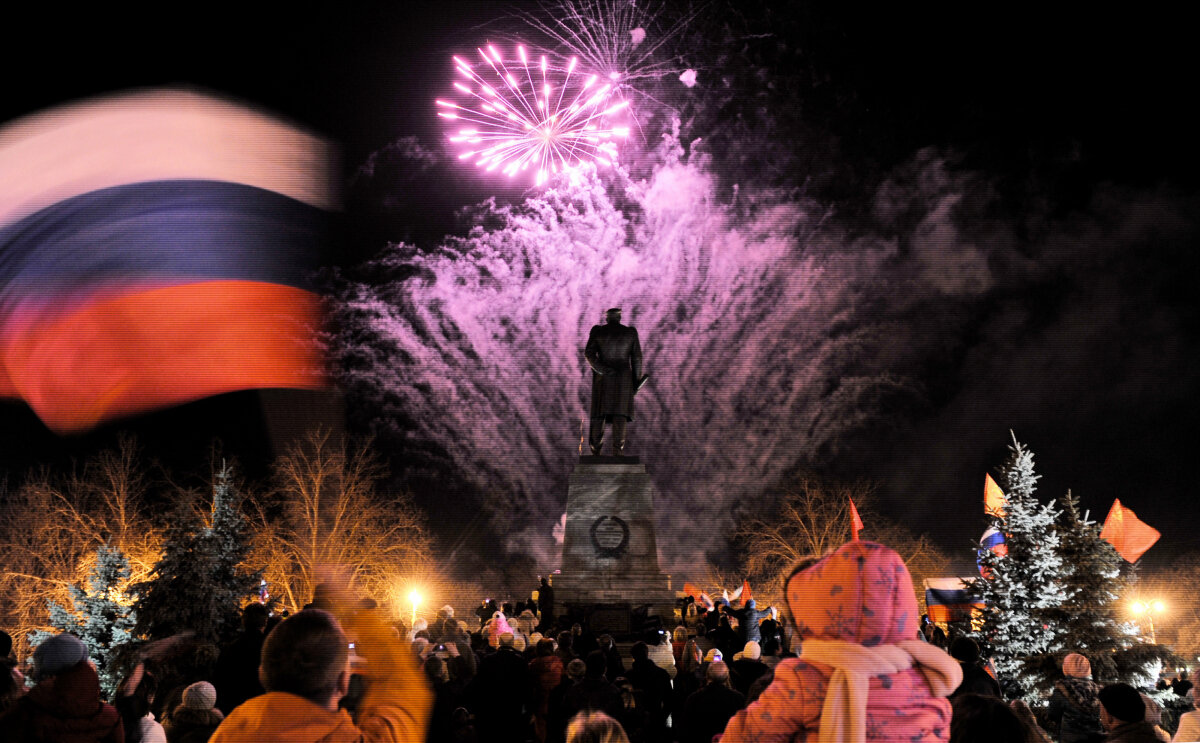
The Ukrainians protested until Yanukovych fled the country. Putin may not have expected this outcome, but he used the turmoil to further advance his goal. He focused specifically on the federal Republic of Crimea, which was a semiautonomous region of Ukraine. After deploying undercover agents to destabilize Crimea, he arranged for a referendum which would ostensibly let the people of the peninsula decide whether they wanted to return to Mother Russia or not.
In truth, Ukrainian law unambiguously forbids any such referendum. But no one stood against Putin to stop the sham referendum from happening. So on March 18, 2014, Crimea became an official part of Russia.
Putin had literally redrawn the borders of Europe.
_____
Russia Is Back
Putin is continuing to do everything he can to prevent Georgia, Ukraine and all other former Soviet countries from developing closer ties with Europe. He also pushed the U.S. out of his backyard in 2013 by pressuring Kyrgyzstan to kick America off Manas Air Base, which was America’s last remaining military base in Central Asia.
Russia’s deep involvement in the Middle East has helped the brutal Syrian regime retain power and has been instrumental in allowing Iran to continue pursuing nuclear weapons.
Domestically, Putin has transformed the Russian media into a propaganda machine. He has severely curbed the power of democracy and emasculated Russia’s parliament. Under Putin’s reign, Russia is also transforming its military machine into a modern, technological, 21st-century force.
By all of these heavy-handed tactics, President Putin has not only brought Russia back into play as a world power, he has also secured his position at the nation’s helm.
And don’t forget: Russia has an incredibly vast nuclear arsenal and has publicly stated that nuclear weapons remain key to the nation’s defense strategy. Moscow has even made plain that it is not averse to the possibility of launching preemptive strikes to defend its interests!
Experts tell us that once a nuclear war starts, it cannot be stopped.
Our world is edging toward nuclear madness, precisely as Jesus Christ prophesied almost 2,000 years ago: “For then shall be great tribulation, such as was not since the beginning of the world to this time, no, nor ever shall be. And except those days should be shortened, there should no flesh be saved [alive]: but for the elect’s sake those days shall be shortened” (Matthew 24:21-22).
If nuclear war starts, and if it is not intercepted by some higher power, no person or animal on Earth would survive!
_____
An Army of 200 Million Men
The Bible warns us to expect a great power rising from the East. It calls it “the kings of the east” (Revelation 16:12). Around the year a.d. 90, the Apostle John recorded an amazing prophecy about this eastern power bloc: “And the number of the army of the horsemen were two hundred thousand thousand: and I heard the number of them” (Revelation 9:16).
That means this Asian force will have an army of 200 million men! That is more people than were alive in the world when that prophecy was recorded. This is an end-time prophecy that we are certain to see fulfilled very soon.
The Bible gives some important details about this largest army ever assembled on Earth, including that it will have one lead country: Russia.
A prophecy in Ezekiel 38 says. “And the word of the Lord came unto me, saying, Son of man, set thy face against Gog, the land of Magog, the chief prince of Meshech and Tubal, and prophesy against him” (Ezekiel 38:1-2).
Scholars generally agree that “Gog” is Russia and that “the land of Magog” includes China. The descendants of Meshech and Tubal have been found together throughout history. In Assyrian and Greek histories, Meshech appears as Musku, Muski or Mushki—all names related to the Russian spelling of Moscow, as you can read in the International Standard Bible Encyclopedia. What about Tubal? On the eastern side of the Ural Mountains lies the city of Tobolsk, named after the Tobol River, derived from Tubal. Tobolsk was once the seat of Russian government over Siberia and was basically considered Russia’s Asian capital.
One other Russian people is mentioned in Ezekiel 38:2. There is controversy over how the Hebrew word rosh should be translated in this verse. The King James Version uses the adjective “chief.” But the correct rendering (used by the Moffatt, New King James and others) uses the word not as an adjective, but as a proper noun: Rosh. Thus, that verse should read, “the prince of Rosh, Meshech and Tubal.”
Rosh was the ancient name of Russia, once called Rus. Many encyclopedias and commentaries (such as the Jamieson, Fausset and Brown Commentary) recognize this. So who is this “prince” of Russia, Moscow and Tobolsk? The use of all three names states that this is an individual ruler of all the peoples of Russia, from the west to the east.
This proves that Russia will be the head nation of this massive “kings of the east” power bloc! That is at the heart of why the Trumpet watches Russia’s return to superpower status so vigilantly.
It is also vital to note that “kings” is plural in the phrase “kings of the east.” This differentiates this power bloc from the “king of the north” and the “king of the south,” which are also prophesied in the Bible. The pluralization means that, although Moscow will be at the head of the bloc, Russia will be dependent on its alliance with other Asian countries—and one in particular that is more powerful and more populous: China.
Since Ezekiel points to China as being Russia’s main ally in this bloc, the Trumpet also carefully watches and reports on the burgeoning Russia-China partnership.
A remarkable passage in Daniel 11 shows how the Russian-led “kings of the east” axis will factor into World War iii! “And at the time of the end shall the king of the south [this is a radical Islamic Middle Eastern power, led by Iran] push at him: and the king of the north [a revived European Holy Roman Empire, led by Germany] shall come against him like a whirlwind, with chariots, and with horsemen, and with many ships; and he shall enter into the countries, and shall overflow and pass over. He shall enter also into the glorious land, and many countries shall be overthrown …. But tidings out of the east and out of the north shall trouble him: therefore he shall go forth with great fury to destroy, and utterly to make away many” (verses 40-44).
The head of a revived Holy Roman Empire will hear troubling tidings from the east and north. These tidings come after the king of the south has been destroyed, and they come from the Asian axis, led by Russia! The Holy Roman emperor will be disturbed about what the Russians and Chinese are doing.
Before this, when the Great Tribulation first begins, this emperor will have been cooperating with the Russian-led Asian axis to besiege the Anglo-Saxon nations economically. But perhaps he hears rumors that the Asian axis is planning to invade North America and conquer it for its own. Regardless of what the exact “tidings” turn out to be, the Bible is clear that news about the prophesied Russian-led Asian axis will provoke the Holy Roman Empire to go forth with great fury to destroy!
_____
All According to Plan
Today, Europe is growing more and more nervous about Russia’s increasingly belligerent behavior. This nervousness gives us a flash of insight into a terrifying Bible prophecy. It is all building now—at this moment—to a spectacular fulfillment! These events in Russia and Europe are working out according to God’s master plan.
Herbert W. Armstrong, the editor in chief of the Trumpet’s forerunner, the Plain Truth, prophesied that Russia’s rise and its aggression would be a key factor prompting the European nations to unite. He wrote: “What Russia is doing will be the spark to bring the heads of nations in Europe together with the Vatican to form a ‘United Nations of Europe’” (co-worker letter, Jan. 23, 1980).
A few years after that was written, the Soviet Union that Russia was leading collapsed. After that collapse, it may have been easy to dismiss Mr. Armstrong’s prophecy. But today, Russia is back! And the Russian leadership is determined to restore its power and glory, which is hastening the unification of Europe, just as Mr. Armstrong said it would!
He knew that it would happen because his forecast was based on the sure word of Bible prophecy, including the specific passages of scripture mentioned above.
Even the Russian people don’t understand why their nation has returned to the center of global events. But you can know if you understand the Bible and watch world events (Luke 21:36).
World events date the Bible’s prophecies and reveal where we are in the overall time frame. A more powerful and dictatorial Russian government is on the scene, and you need to know where it is leading. That power will be able to challenge Europe when nobody else can—including the United States. The EU is going to become the world’s number one superpower. So says Bible prophecy.
Russian economics and demographics are in trouble. Time is running out on its opportunity to forge for itself a position of lasting significance. Its conventional military and its nuclear arsenal are both aging quickly, though Moscow is spending aggressively to update its armaments. Demographically, birth rates are plunging precipitously. Vladimir Putin and the Kremlin are running out of time to restore Russia to great-empire status! This is Russia’s moment. America is squeezing Russia, hoping nature will take its course and Russian power will wane. But you can be sure that Russia will lash out violently rather than quietly fade into obscurity.
Bible prophecy says this will indeed happen!
Don’t expect Russia to drop from the headlines. In fact, expect Russia to ramp up its efforts to restore the Soviet empire. This will likely mean forging closer ties with China and other Asian nations and entering into a major agreement with Germany and Europe that will address both European and Russian vulnerabilities. Expect Russia to continue to be highly active in defending and enlarging its periphery. Expect Ukraine, or at least its eastern regions, to continue gravitating toward Moscow. It is highly unlikely we will see nato expand much further eastward.
The nations are blind to where these events are leading. But behind these developments is an invisible power, assuring that a master plan is being fulfilled. God has given us a remarkably detailed warning in biblical prophecy of how these events will climax in a spectacular global clash. Will you heed?

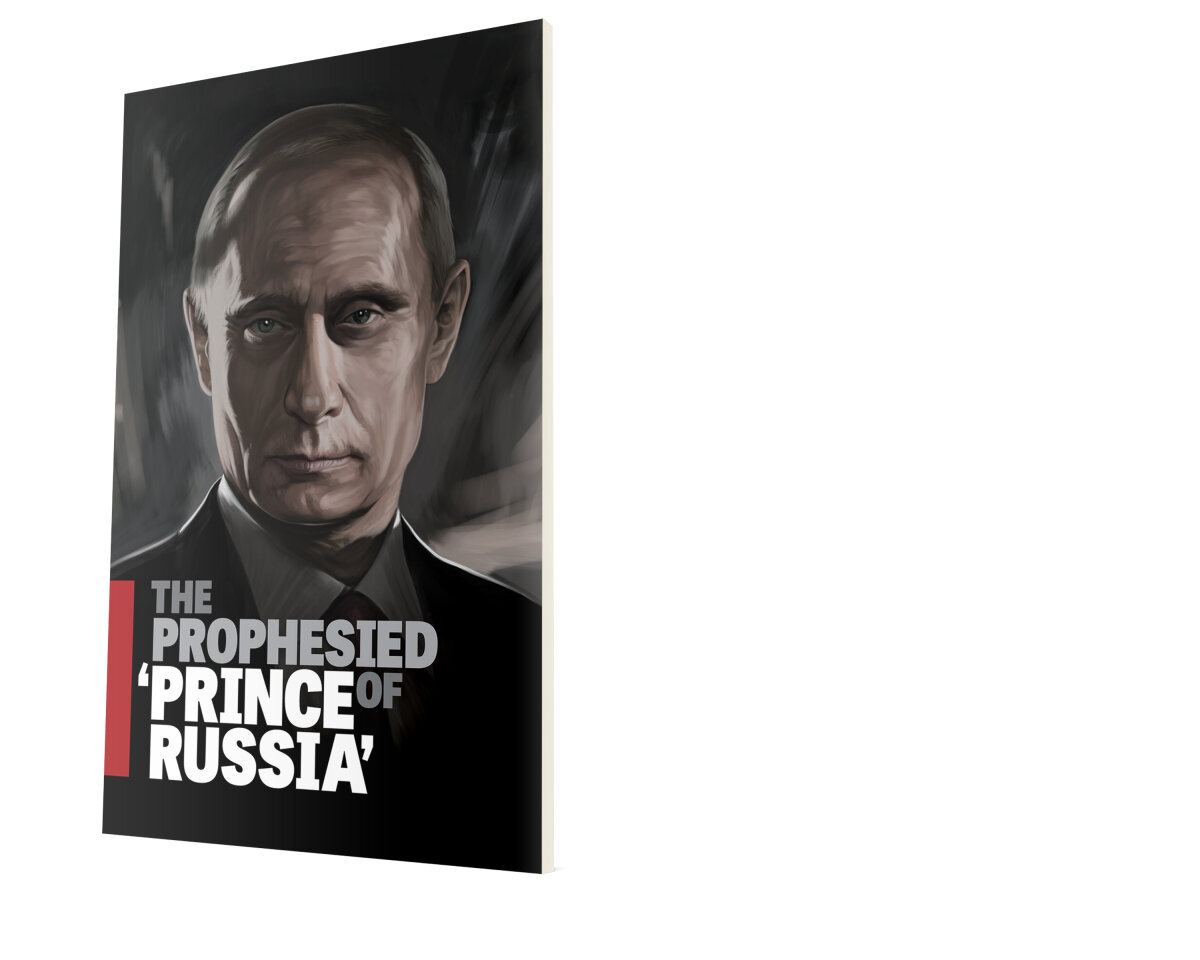
WHO IS THE
‘PRINCE OF ROSH’?
How has Russia been able to begin rebuilding its Soviet empire? How has Vladimir Putin become so strong? What will his nation do in the near future?
The Bible prophesies the future of the descendants of Meshech and Tubal, the “prince of Rosh” and the land of Gog (Ezekiel 38). Ancient histories and modern references relate Meschech and Tubal to Moscow and Tobolsk, and the land of Gog to Russia. Could the prince of Rosh be Russian President Vladimir Putin? Prove the prophecy for yourself: Request your free copy of The Prophesied ‘Prince of Russia,’ by Gerald Flurry.
